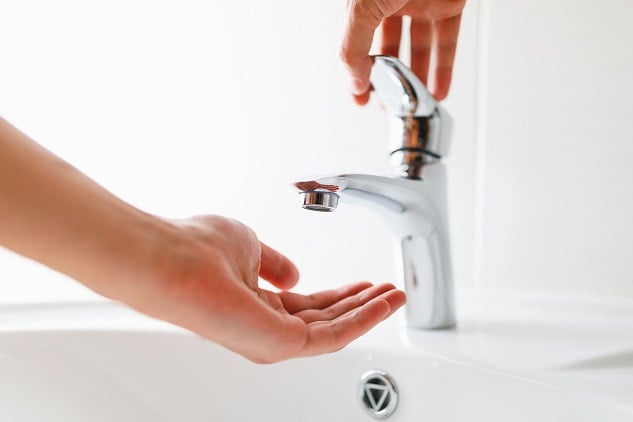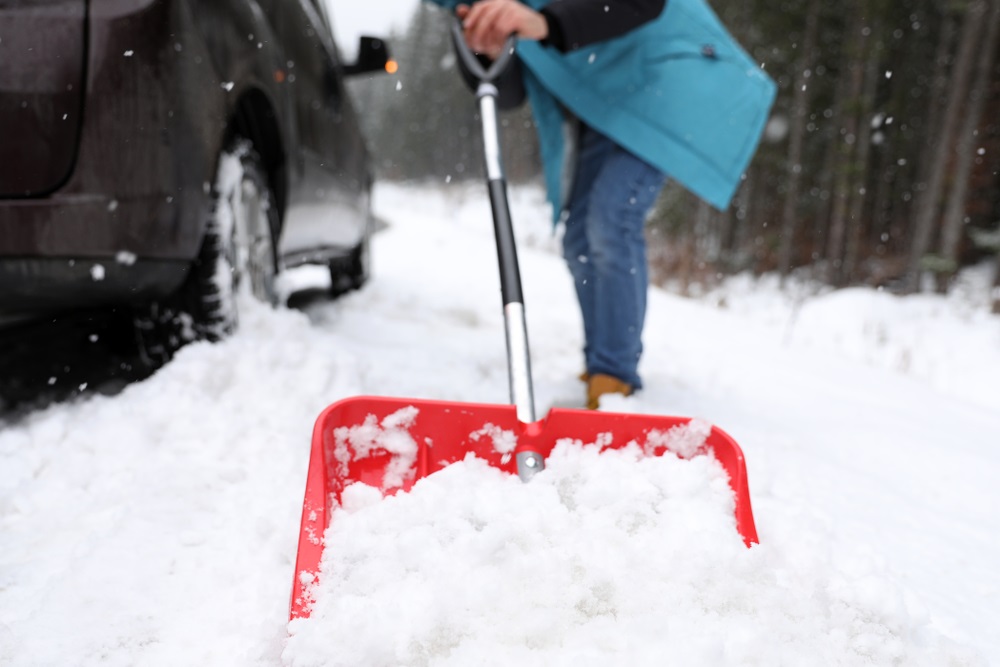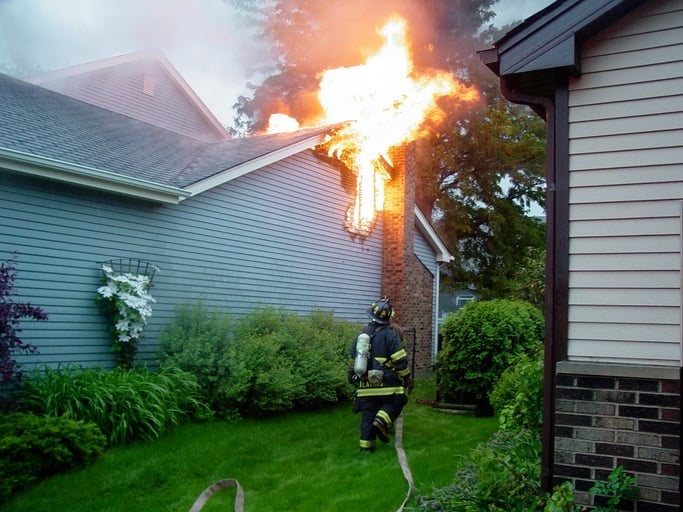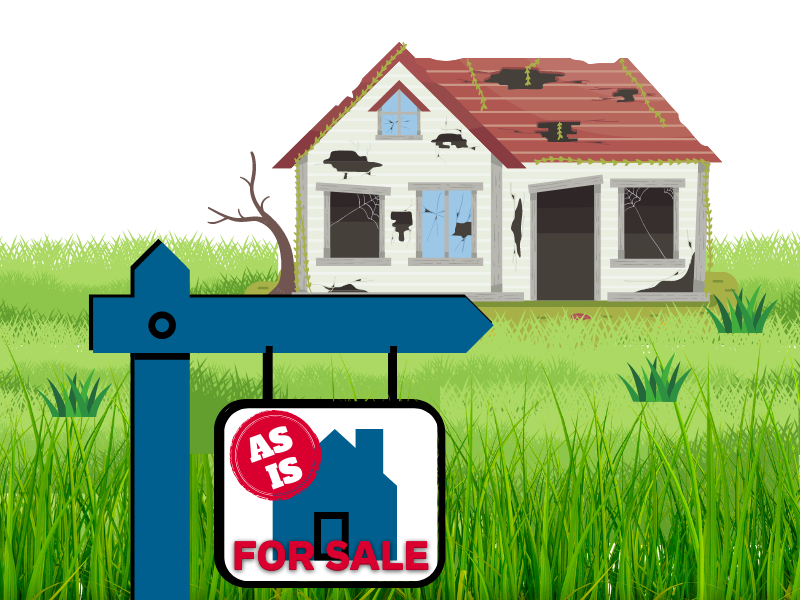
Virginia's housing market has been heating up along with summer temperatures. With lots of buyers and too few homes, demand is high, and prices are higher. If you're house hunting right now, navigating this hot market is not for the faint of heart or the uninformed. If you've come across an "as-is" house for sale and think you've found your own sweet fixer-upper, read this first, and then go find a seasoned Virginia realtor with good referrals!
What is an "as is" home sale?
All Virginia home contracts generally state that a home is for sale "as is" unless mutually agreed otherwise. But with most home sales, an independent inspection is performed, and the buyer and seller negotiate certain repairs or price adjustments as a normal part of the home buying process.
With a true "as is" sale, the buyer has removed the option for repairs along with any negotiations on the price. This must be clearly stipulated on the contract, and the buyer must initial the statement, verifying they understand the conditions of the sale to be "as is." Make sure you and your realtor read the fine print. An as-is" sale can have different clauses excluding even the most standard parts of a contract, such as termite extermination and damage repair, violations from a local authority, or code compliance.
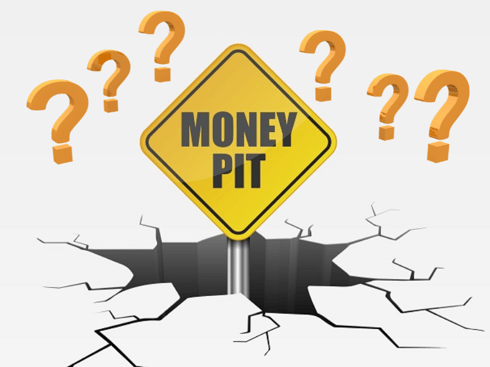
There are various reasons why someone might want to sell a home in its current state without consideration for repairs. The seller may have inherited the home, the land may be worth more than the house, or they may not have the time or money to do repairs. They also might have already moved and don't want to be bothered with overseeing long-distance repairs. Typically, an as-is home is priced with its condition in mind, but you never know in this real estate market.
Virginia is a "buyer beware" state.
In the state of Virginia, sellers are not required by law to disclose defects or point out flaws in the home they are selling, with the exception of the federal disclosure of lead-based paint in older homes. Sellers are legally liable for any intentional or willful misrepresentation of the property's condition, but it can be hard and expensive to prove liability in Virginia courts.
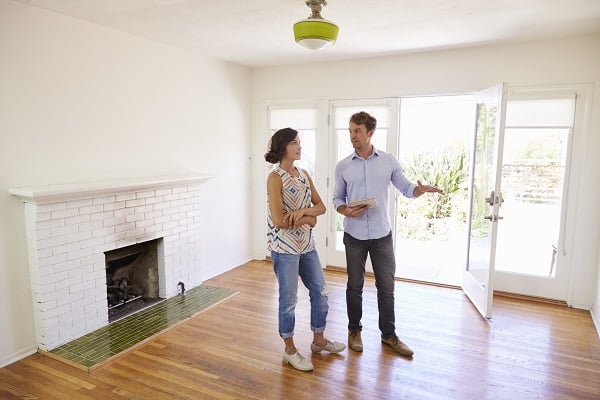
Get a home inspection
While it's easy to get caught up in the fear of missing out on a home, it's never good to make a hasty buying decision in this situation. It's one thing to be spontaneous when buying a new dryer and another thing when buying a home. This is a lifetime investment, so be sure you know what you're getting by way of a home inspection. This might be challenging with an "as-is" home sale, but there are significant financial dangers to waiving a home inspection.
If you're considering buying an "as is" home, insist on an informational-only inspection with the option to void the contract if needed.
Having a contingent inspection, even though the seller has indicated they won't negotiate repairs, gives you the option to walk away and get your binder money back if significant issues are discovered.
Keep your eyes on the big stuff. Get multiple written estimates from experienced contractors and understand many times, more repairs are discovered once the work is progressing. Find out the timeline of the work and how you will pay for it. It may be that the work can be done over time. What can you live with and what is more pressing?
Five more ways to buy an as-is home in Virginia
1. Make sure your agent is experienced with "as-is" home sales.
Your agent should be knowledgeable about the caveats of this type of sale. They should be able to inform and advise you thoroughly and negotiate successfully on your behalf.
2. Make the most of your home inspection.
Even though you won't get a break on the sales price regardless of what you learn about the home, how you handle your home inspection is critical to the decision-making process. Use references from your realtor or family and friends to hire a reputable inspector rather than the cheapest one. Be sure to give them space and time to focus on doing the best job for you. Make a note of any trash or debris in or outside of the house. You will be responsible for removal and cleanup.
3. Make sure you can get financing and home insurance.
Keep in mind, your lender and home insurance carrier also have an interest in your home sale. They have requirements to ensure a home is a sound investment free of structural, health, and safety issues. It's also required by HUD if you're financing the home purchase with an FHA loan. In Virginia, mortgage loans cannot be approved without a satisfactory Termite or Wood-Destroying-Insect Inspection report. As-is contracts can be tricky if you are financing the purchase.
Insurance carriers can carry out their own inspections on a property before they agree to insure it. We've seen some scary home inspections while protecting Virginia homes and property. A quoted estimate prior to signing on the dotted line can make sure you can get coverage and help you budget for the potential premium.
Your local agent can advise you on risks in the home's area as well. Having the right coverage will protect you down the road in the event of wind storms, hurricanes, and earthquakes. This is a great segway into #4!

This one is so important!
4. Make sure the home is not prone to flooding.
Virginia has no flood risk exposure laws, and flood zones are expanding throughout Virginia. Buying a home with flood exposure not only means you may have to deal with a flooded home but that you'll also need to budget for flood insurance. Your inspector should know how to look for signs of past flooding as well!
5. Hire a pest control inspector.
If your home inspector finds small signs of pest damage, consider getting a second opinion from a pest professional to uncover the complete picture of the damage. You may be seeing just the tip of the iceberg!
6. Ask your realtor about purchasing a home warranty.
In this housing market, the seller will not agree to upgrade old equipment if it's working. Getting a home warranty for a year or two can protect you from equipment breakdown.
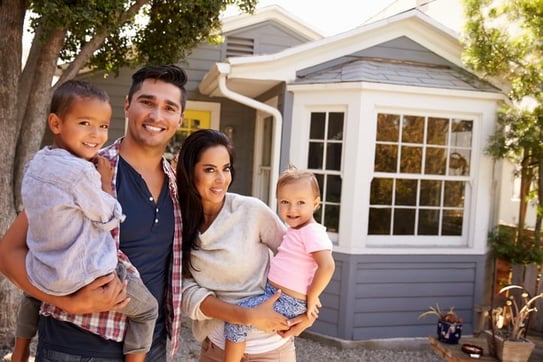
Depending on location, the condition, and the price, there's a good chance someone is willing to buy a house "as-is." This may be the right decision for you too as long as you are informed, have a well-thought-out plan. Be financially prepared for the unexpected.
Learn more about Virginia Home Insurance

